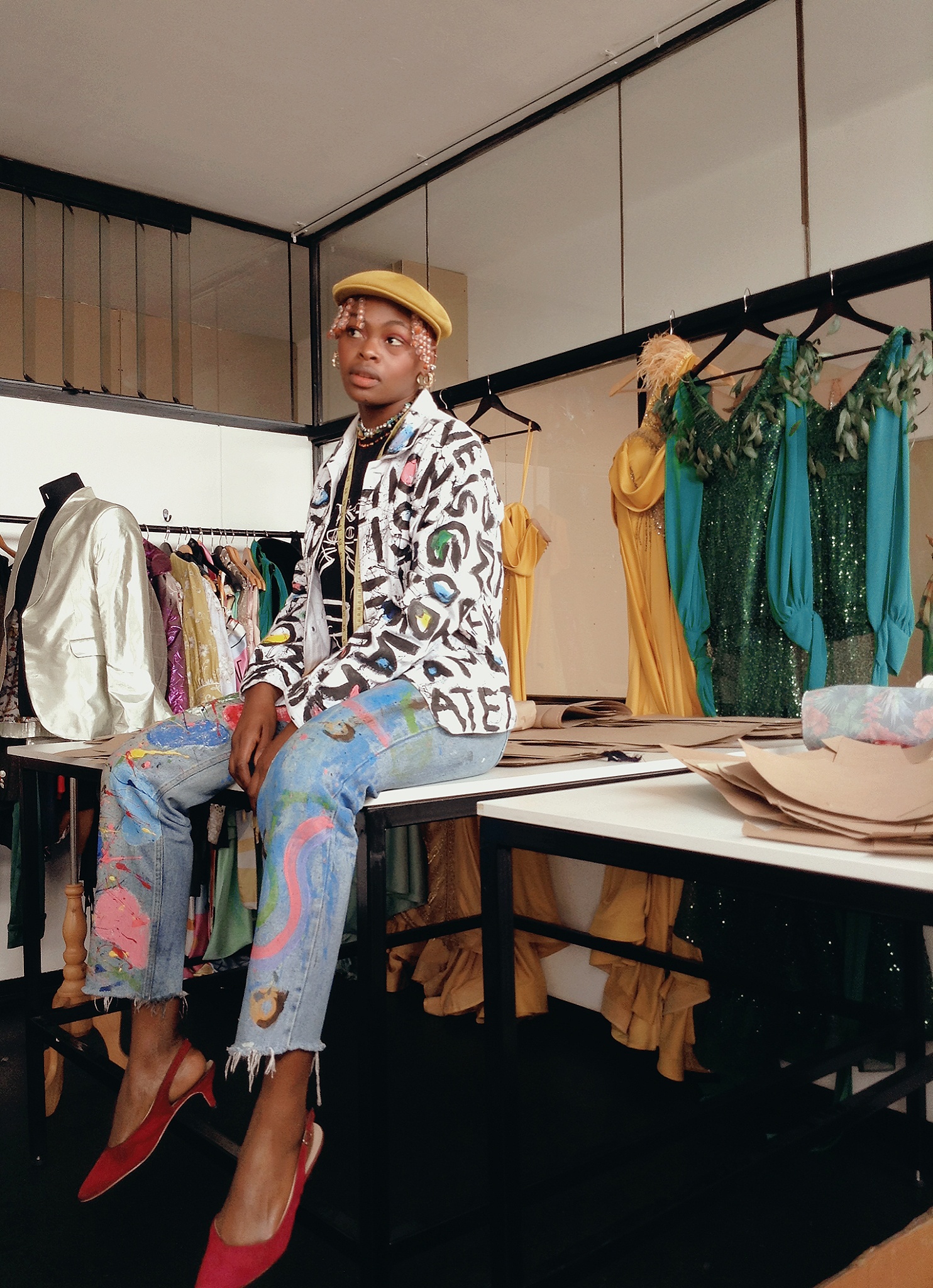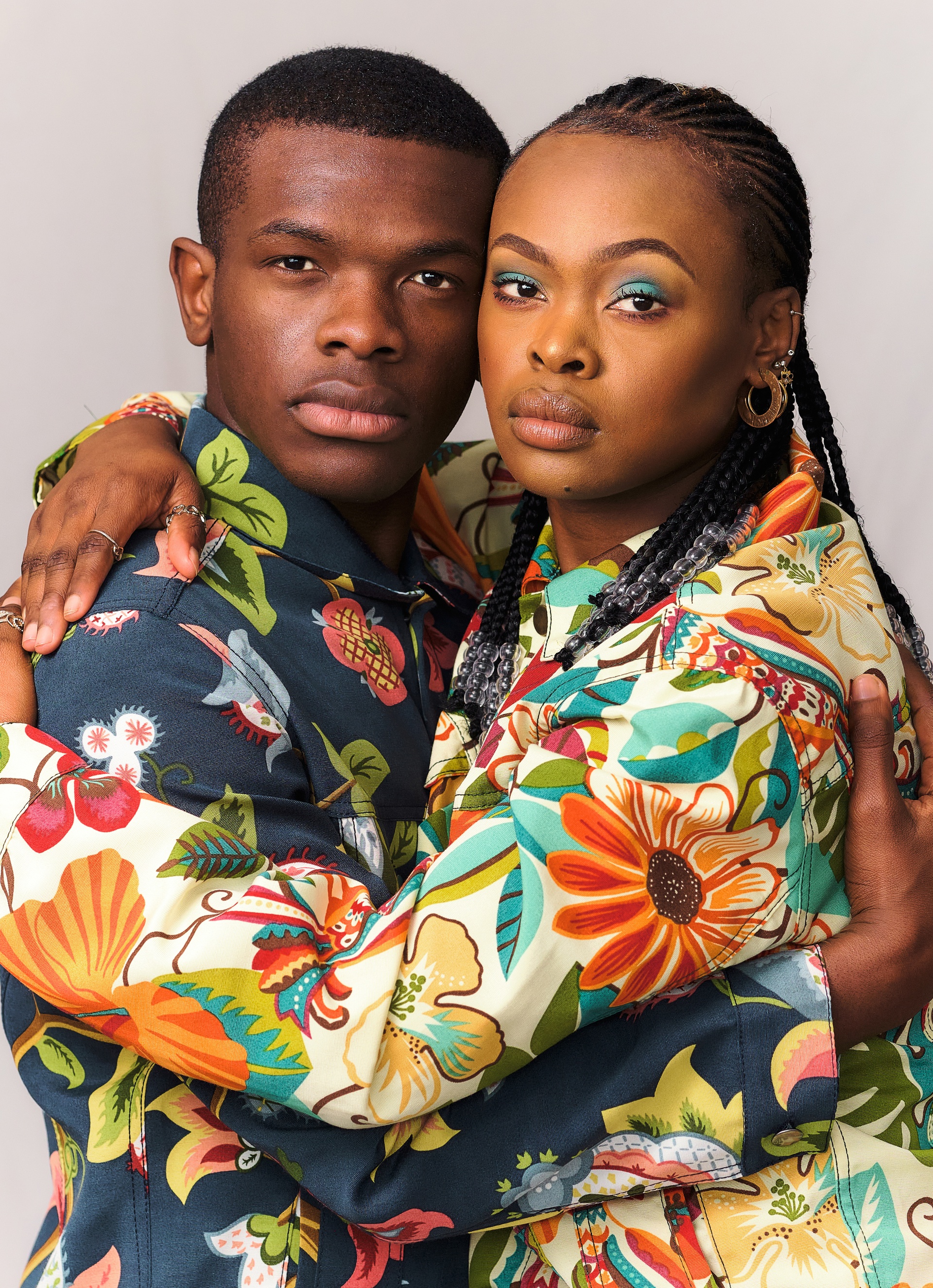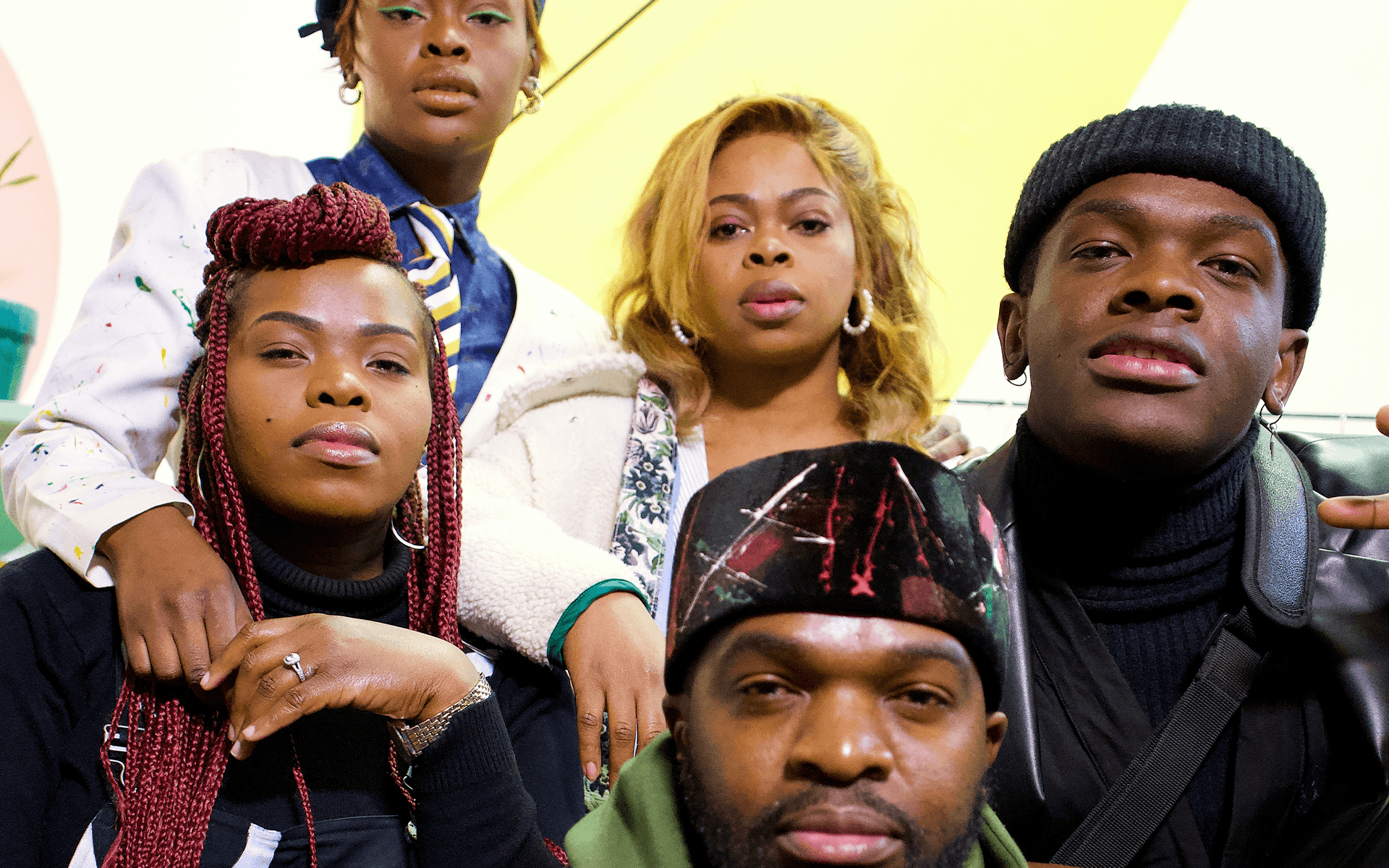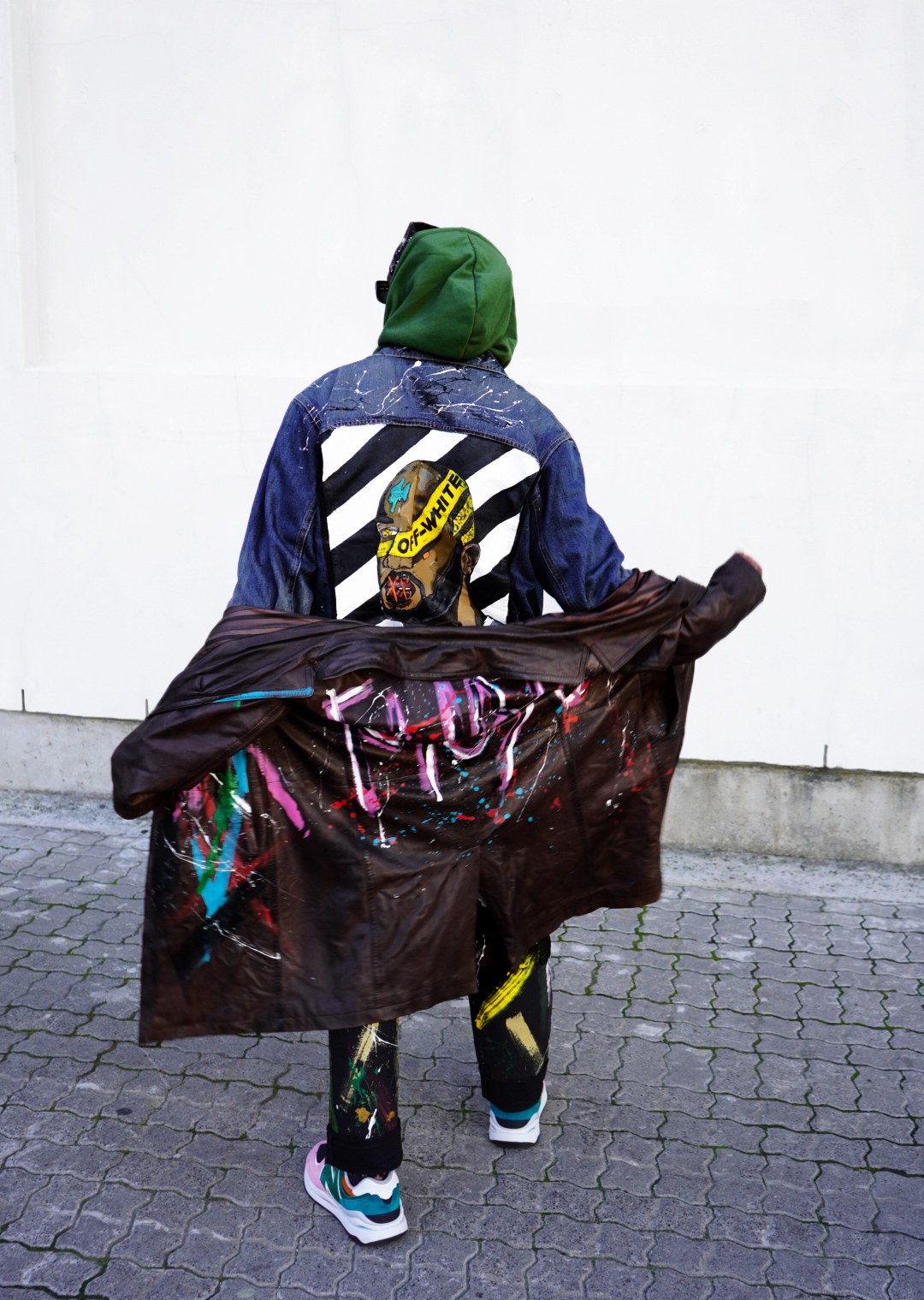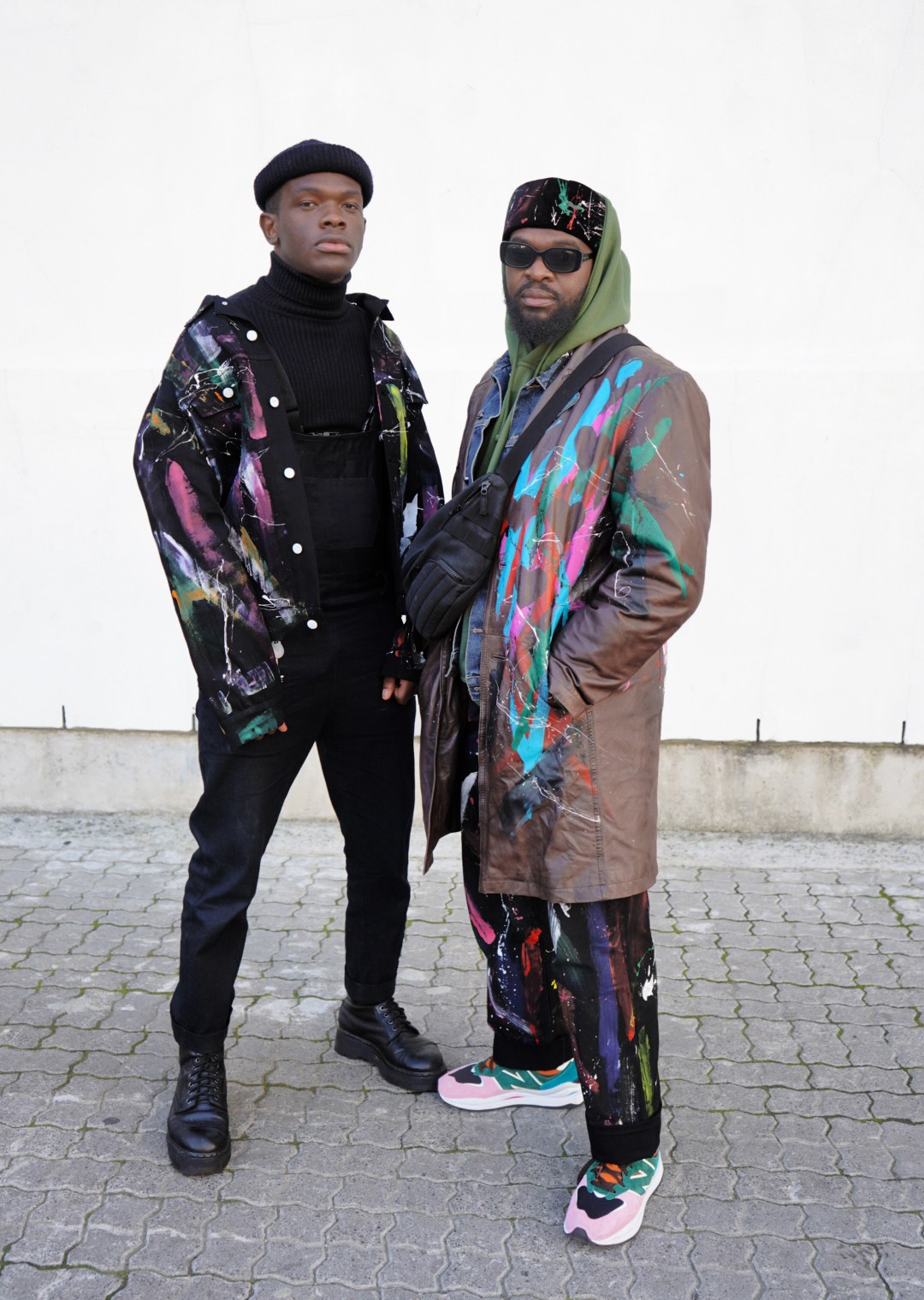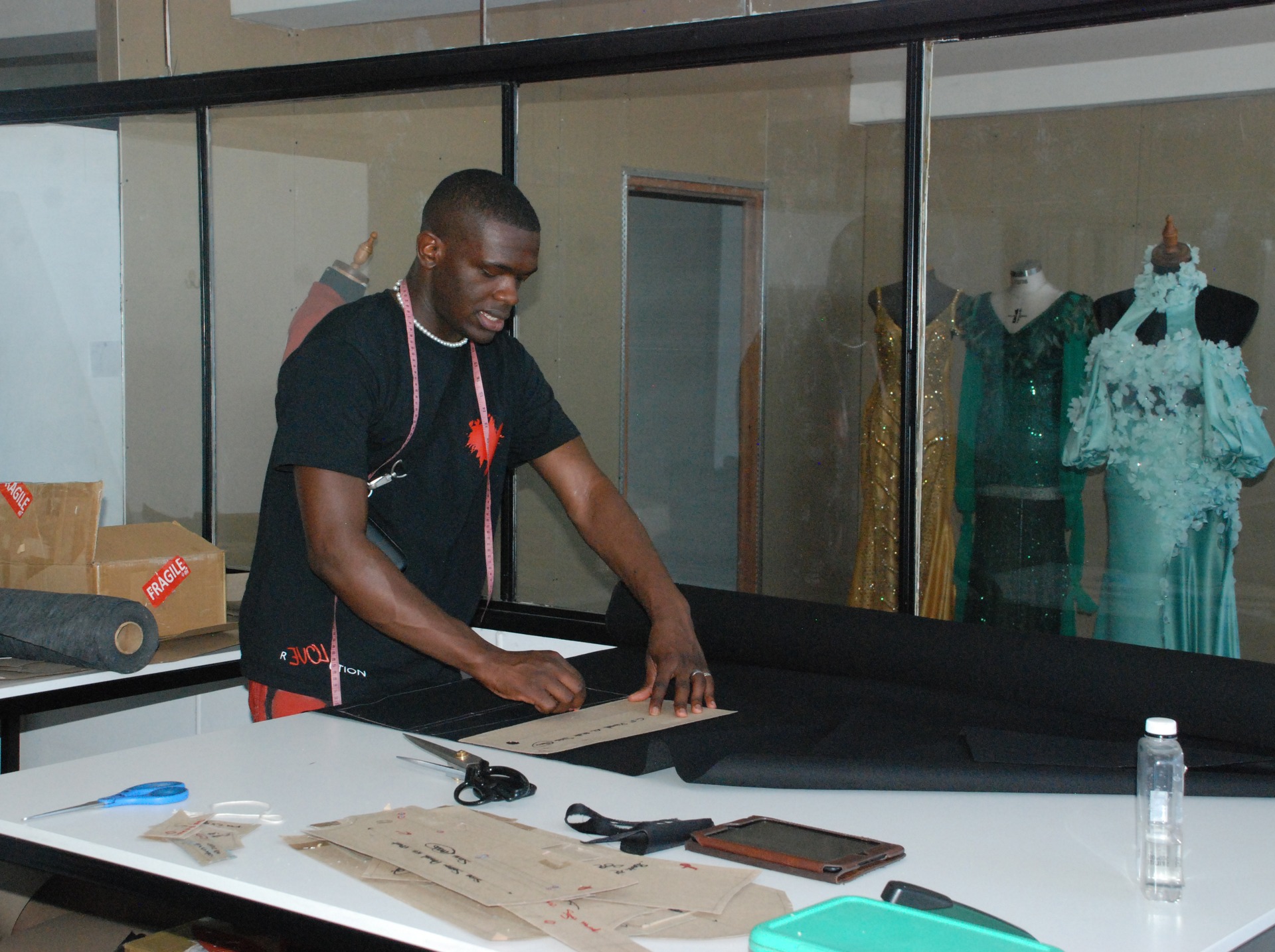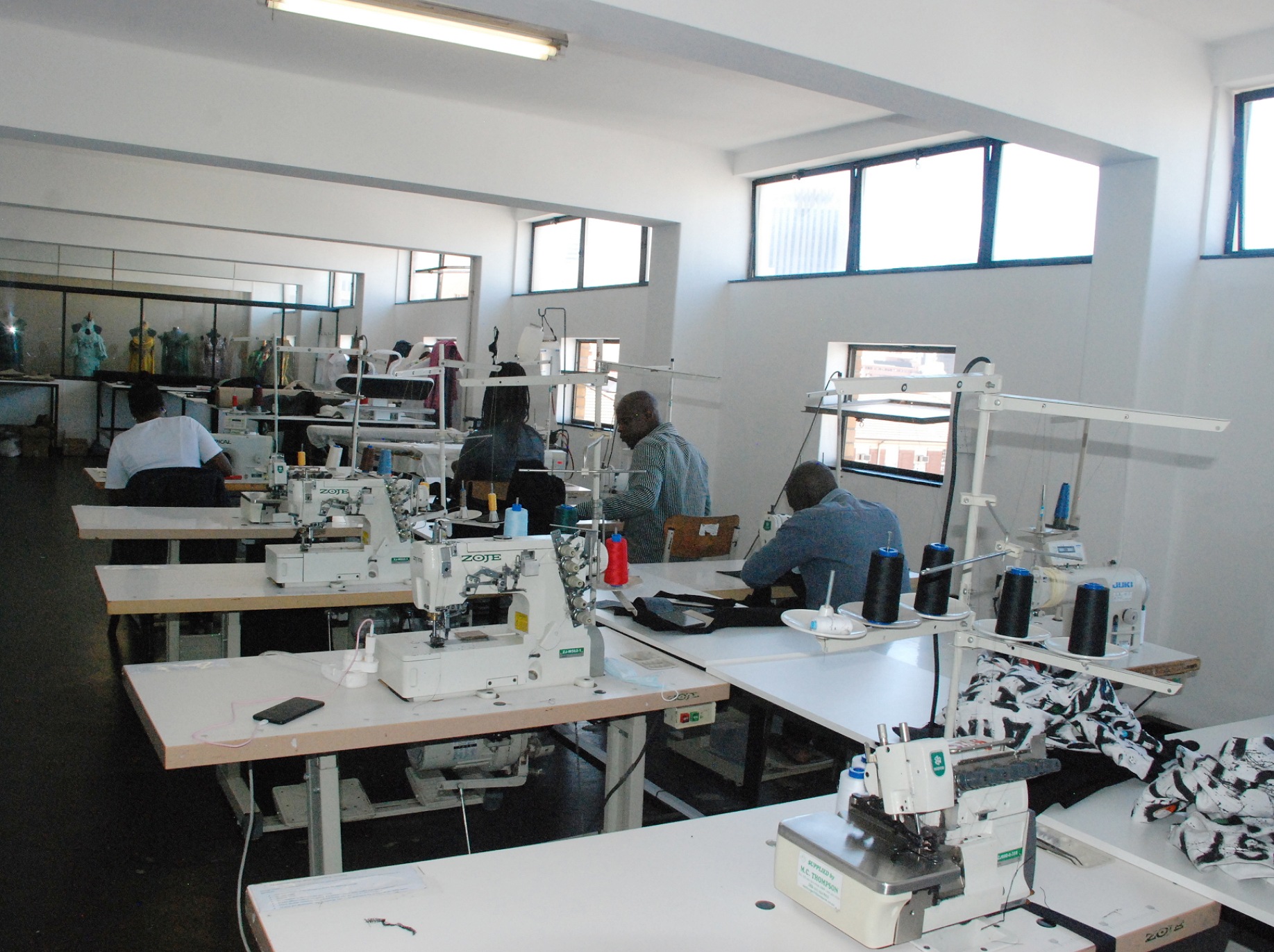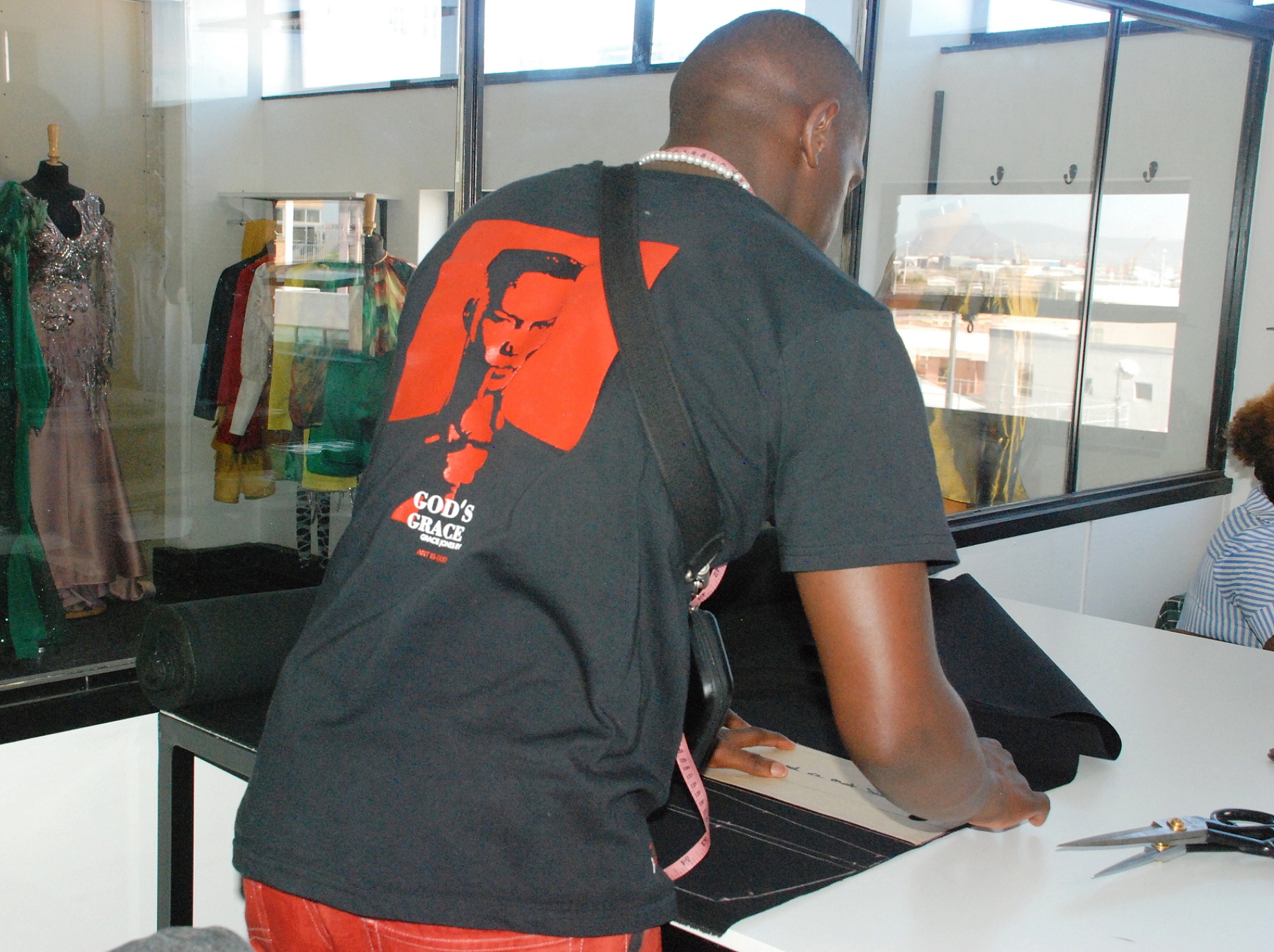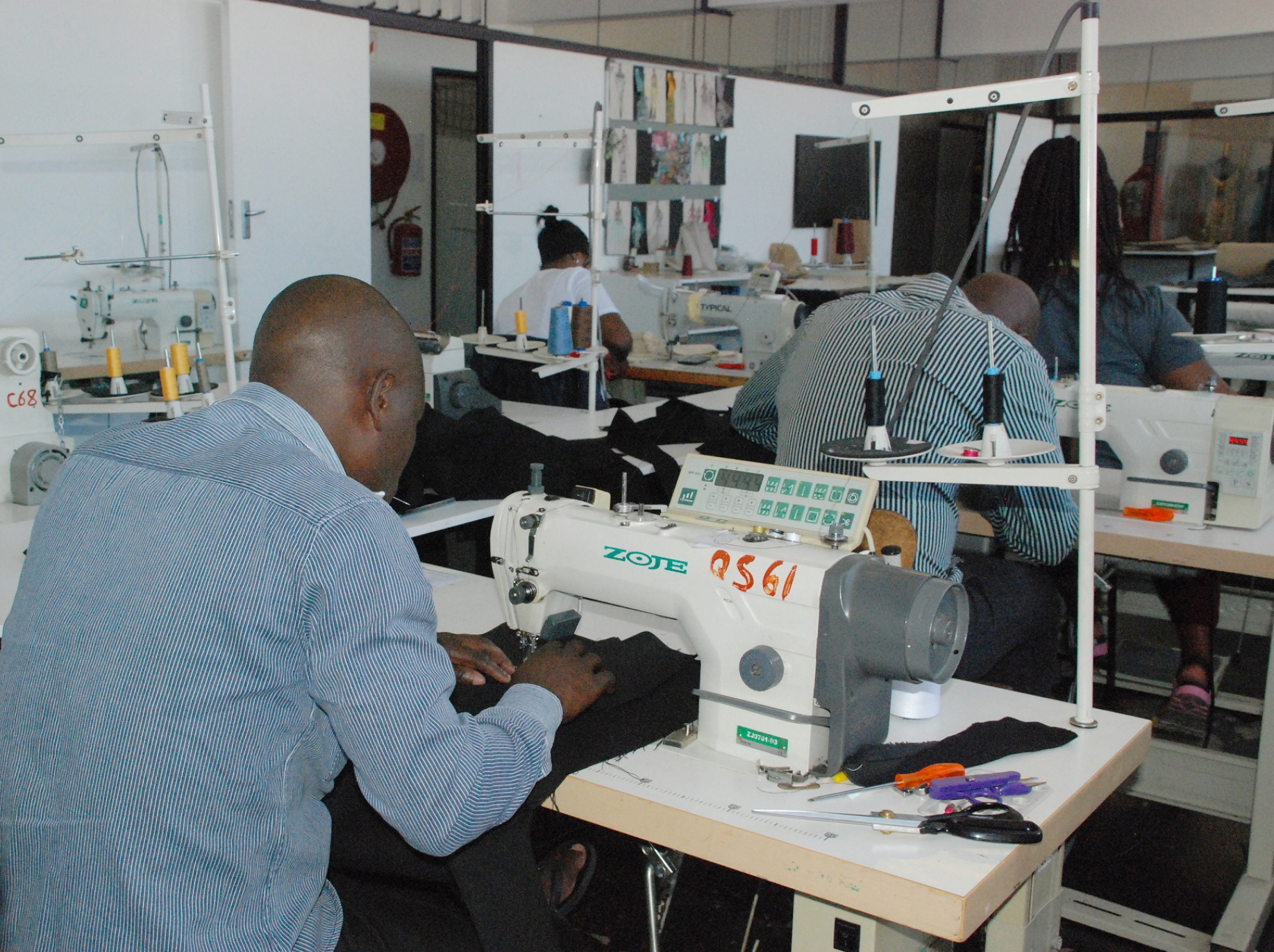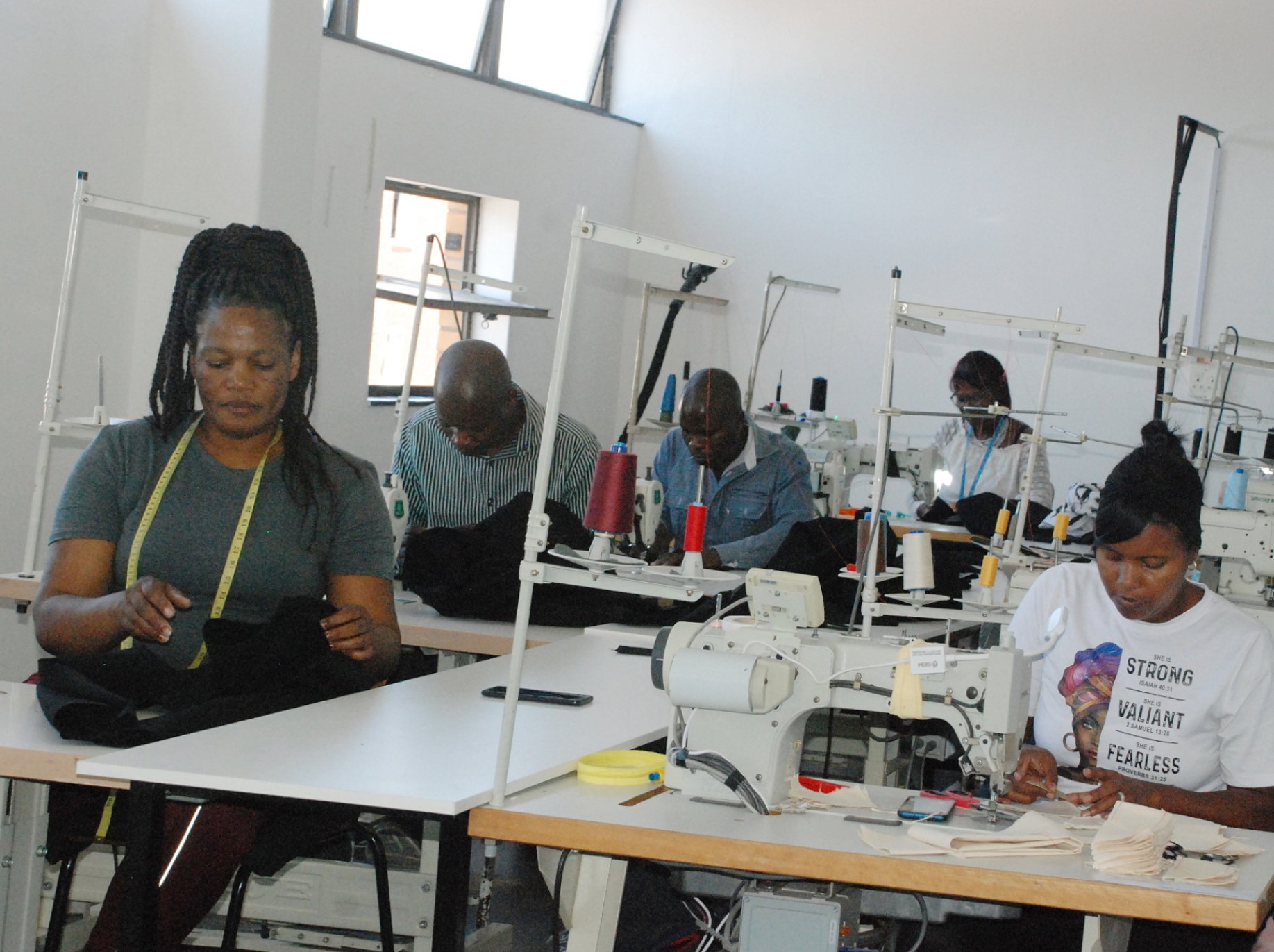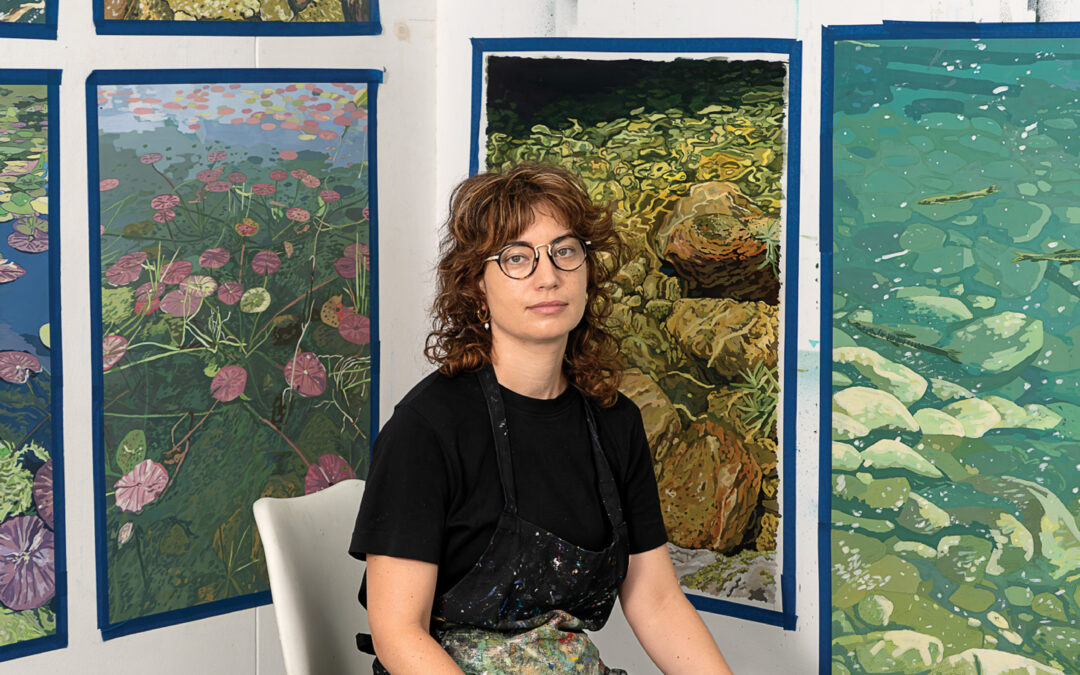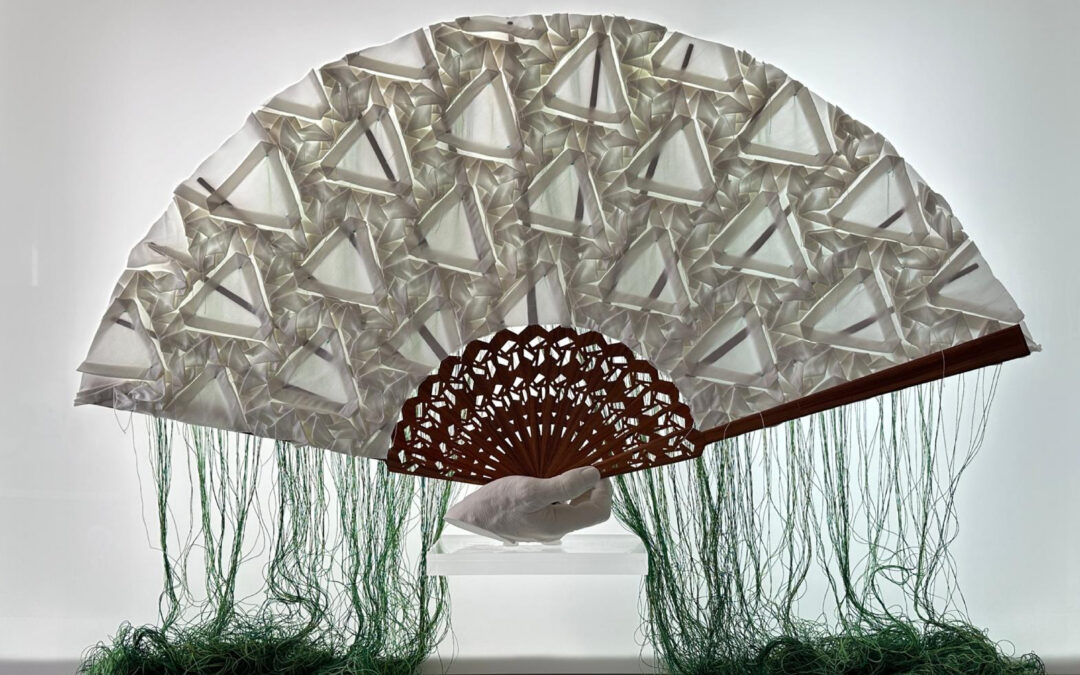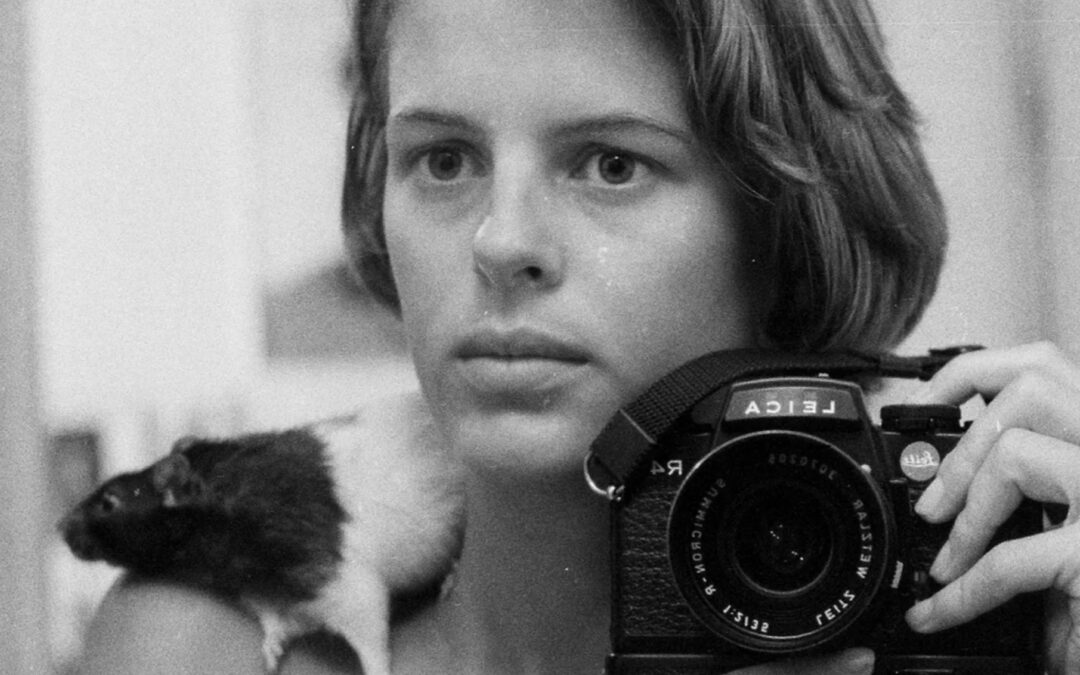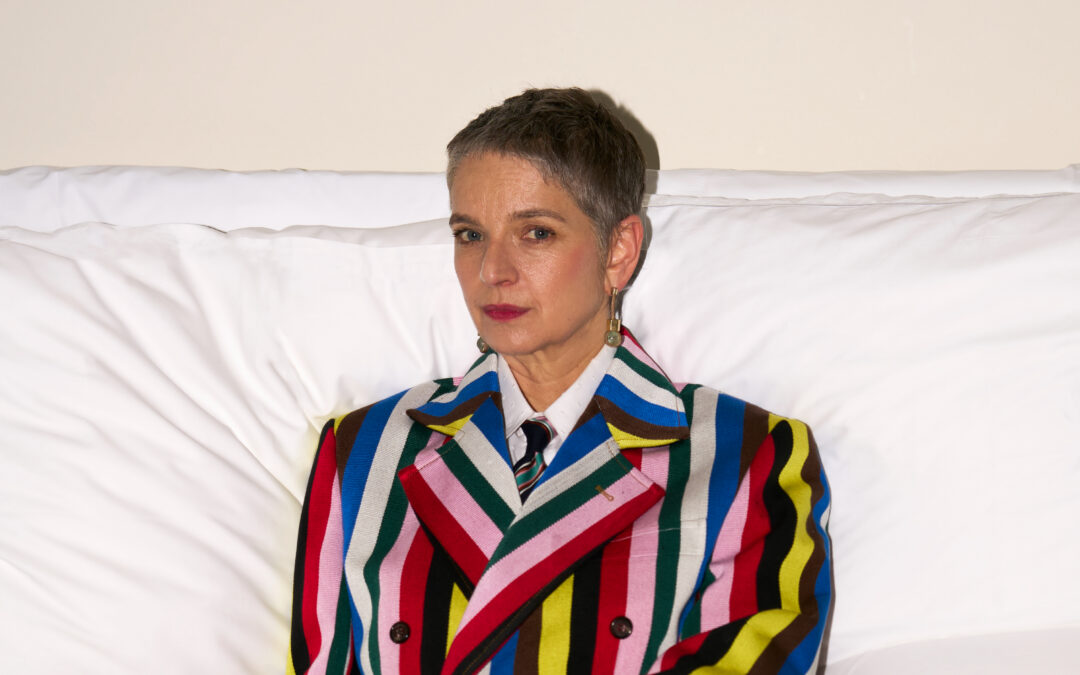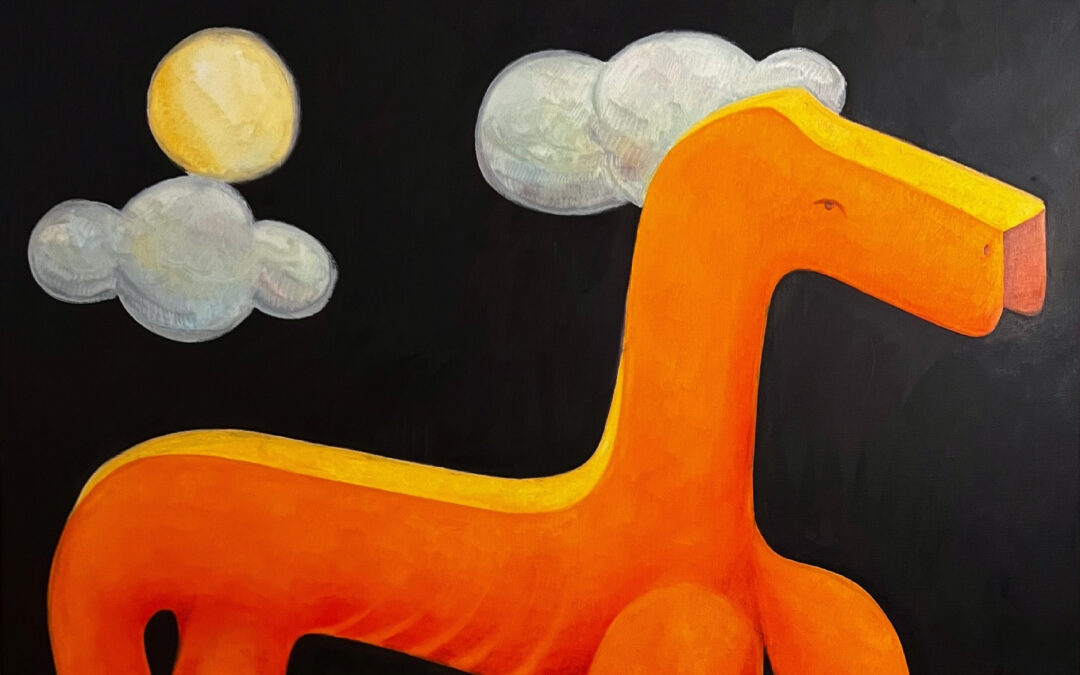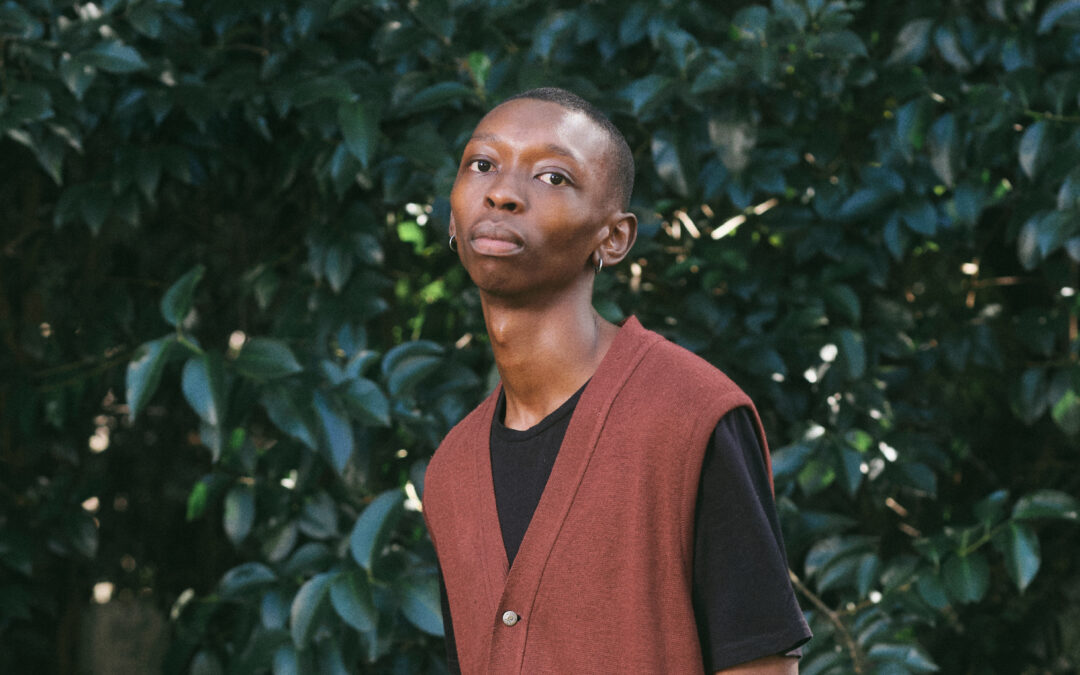It’s one thing to build a brand or company – to be a founder, and hold responsibility for the fruition of one’s dreams – that act, in and of itself, is trying and testing. What happens though, when you go all in with not just one – but all of your siblings, and decide to build a company from the ground up? What if you do so in 2020 – spurred on by the pandemic and the seismic shifts imposed by this shared, global experience? Fuata Moyo is a Swahili phrase meaning, “following your heart” – and it is with this inextricable foundation that the five Mbiola siblings sought to build when everything else seemed to be pausing, or breaking. Love has always been their remedy, even as young kids when their father passed away – himself, an immensely talented artist, who imbued each of them with their own sense of expression. Weaving together their varying backgrounds and skill sets, Kabambi, Martine, Lucien, Kashika and Tshimaro all found themselves with a moment to reflect in 2020 during lockdowns – and understanding how unique such a moment was in a world demanding of our relentless attention – they decided it was now, or never. At first glance, Fuata Moyo seems to be a fashion brand; but looking closer, one is greeted with the brilliant customisation of each piece, and the boundary between fashion and art that the siblings aim to dissolve. This is a legacy in the making; bonded through family, love, and remembrance of their father, all through the commitment to art as an essential for human beings.
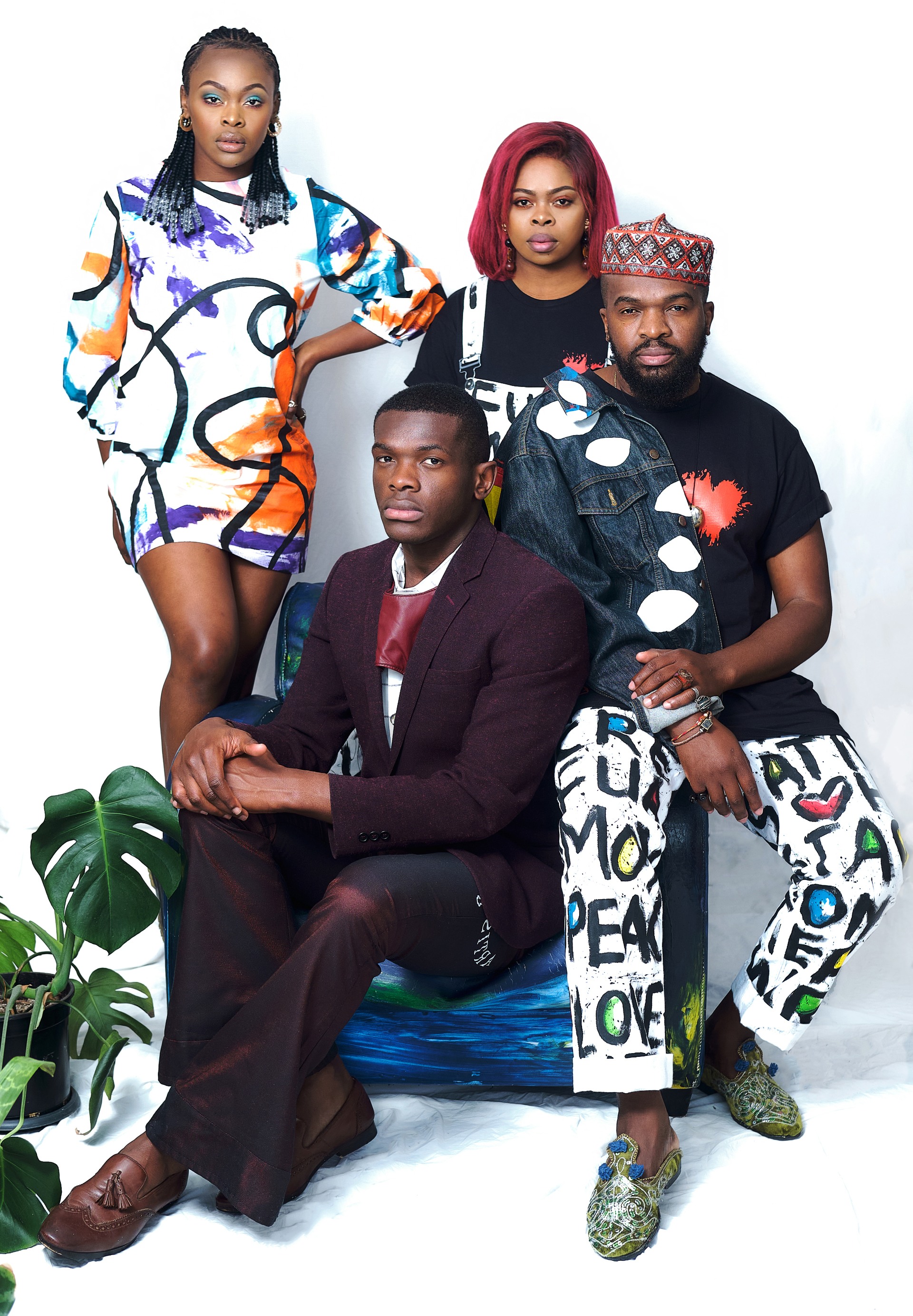

“We grew up in one of those families where team-work was non-negotiable. We grew up with a single mom, so day to day meant we had to have a plan, and put our quarrels aside to function and move forward as a family. Problem-solving came first. I think we were creating Fuata Moyo already then, without realising it, because we had to step into roles early on as a team.” Tshimaro explains, and Kabambi follows – saying, “Our very first collaboration occurred watching our parents work together with their business – our dad as the artist, and our mom managing the other aspects. When he passed away, us children had to step up and take on what he was doing. Those foundations were instilled in us already then; that working with family to create a vision and legacy is made possible through all of us getting involved.” Growing up, the Mbiola siblings found themselves working in similar or adjacent industries – which further signalled to them that their paths were always crossing, even when they each went out into the world independently. It was destined to happen for all five siblings to come back together; this time, under the banner of a shared dream. While the world stopped in 2020, the Mbiola siblings were brought to the forefront of making this dream happen – reflecting on this, Kabambi explains, ‘’I call it in the defining year. Humanity was given a chance to reflect and restart. It was wild to go to my siblings and say, let’s do this – but I couldn’t see us all having time and space, altogether, again in order to truly conceptualise the entire plan. The name itself, Fuata Moyo, is the best way we could describe our choice at that time; we had to follow our hearts, and be led with love in a time when the odds seemed against us.”
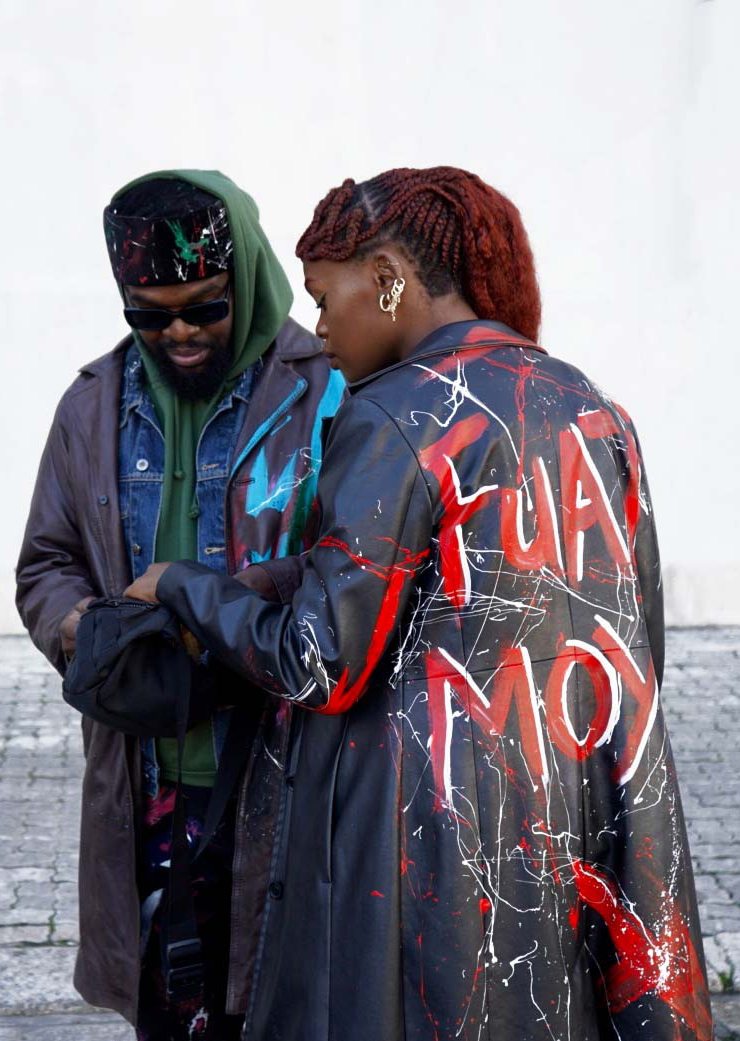
With the Mbiola siblings being an array of artists and designers; Fuata Moyo itself had to be an authentic reflection of this truth. Bringing together these aspects, alongside a clear entrepreneurial spirit, the brand began to embody a canvas upon which each of the siblings could paint their viewpoint. Lucien explains, “We are curating clothing for everyday people. What do artists wear? Where do they go out, what do they do? Fuata Moyo is a person before anything else; our design process is very personal in this way. Then, we extend the construction and design process into art and customisation; the idea that no single painting can be the same, we see clothing in the same way. We love the idea of art and fashion colliding – and everything is hand-rendered with our prints, and craftsmanship is the cornerstone of this. While paint customisation is a signature for us, we also hand-embroider and draw on other mediums.”
One of the toughest hurdles when starting Fuata Moyo was the task of manufacturing – with Cape Town’s garment industry on the decline for many years, most factories won’t take on clients below 50 to 100 units per garment. For many small-scale designers, or bespoke designers such as the Mbiola’s, this proves to be a dilemma. Once they had managed to overcome this gap, Tshimaro explained what came next, “We looked back and saw this gap in the market. We thought about how many designers are not able to get from point A to B in their dream because of this challenge. So we started House of Moyo, our production house where we manufacture our brand, and for the next wave of creatives. This development has been the most encouraging thing to happen – because it widens our community, and we are able to offer young designers what we didn’t have when starting. They can come into the space, receive guidance, production and nurturing from us and our expert CMT’s – and know that this is an ethical vision for fashion design and production.” In two years, to not only bring forward their clothing brand, but pivot to produce everything in house; and extend that outwards? This is the kind of love and depth that our creative spaces in South Africa so need; the reminder that when we do what we want to with love, and with sharing; miracles happen. Kabambi reflects, “We are very proud of House of Moyo, and not a lot of people know about it yet – but we invite anyone with a design dream to connect with us. The next stop is to be able to have a showroom and concept store housing our work, and the designer’s who are produced by House of Moyo, alongside events, art-jamming; all the things that we love to do, we want to share with everyone.”
Ending of our conversation, encouraged by the bond and energy of the Mbiola siblings, I ask each of them to leave words of wisdom for our CEC community, who might be reading this and considering following their own hearts:
Kabambi: Don’t follow fame, don’t follow money – follow your heart and the rest will come. That’s how you stay true to yourself.
Martine: There’s power in unity. Be willing to work with others. That’s the best way to learn, grow and succeed.
Lucien: Do what you love! Believe in your dreams. We are living testament that its not a cliche; it really happens when you believe and act on those dreams.
Tshimaro: I want to say to the young people in Cape Town; we are always going to want more, and I think deciding today and moving today is a really big step. There’s so many brilliant people on these streets afraid to try or start, but today is building for tomorrow.
Kashika: Obstacles are not there to break you, they are there to make you. Crisis is when you rise up; we learned that starting in the pandemic. Be brave.
